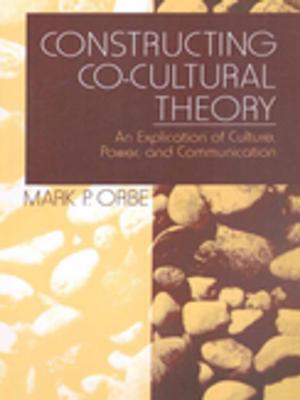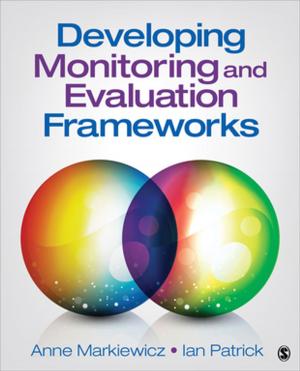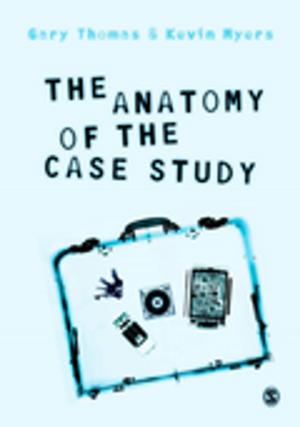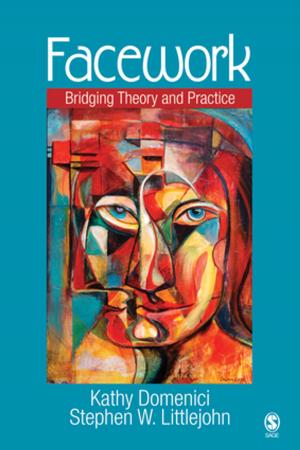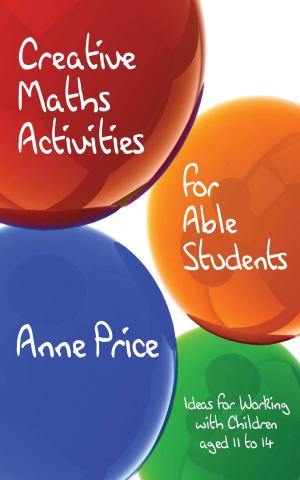Ability Grouping in Education
Nonfiction, Reference & Language, Education & Teaching, Administration| Author: | Professor Judith Ireson, Susan Hallam | ISBN: | 9781446222645 |
| Publisher: | SAGE Publications | Publication: | September 11, 2001 |
| Imprint: | SAGE Publications Ltd | Language: | English |
| Author: | Professor Judith Ireson, Susan Hallam |
| ISBN: | 9781446222645 |
| Publisher: | SAGE Publications |
| Publication: | September 11, 2001 |
| Imprint: | SAGE Publications Ltd |
| Language: | English |
`Ability Grouping in Education will provide very useful and timley background for psychologists working with schools where setting or streaming is a major issue' - Educational Psychology in Practice
`With an anticipated audience of teachers and policymakers, this book is user-friendly, incorporating detailed research findings illustrated by graphs and tables. A summary is provided at the end of each chapter, offering an overview for the time-conscious wishing to skip through the engaging but largely illustrative statistics and quotations. However, a close reading has its rewards, as the extracts from teachers and students offer poignant insight into the enormous complexity and far-reaching implications of ability grouping' - Cath Lambert, Educational Review
In this book, the authors provide an overview of ability grouping in education. They consider selective schooling and ability grouping within schools, such as streaming, banding setting and within-class grouping.
Selection by ability is a controversial issue, linked with conflicting ideological positions and reflected in strong differences of opinion about the merits of selective schooling. Educational systems under pressure to produce an educated workforce have led governments to look for ways of raising attainment, and grouping by ability is sometimes seen as an organizational solution.
Drawing on their own and others' research in primary and secondary schools, the authors provide an accessible analysis of the issues and latest research on ability grouping; as well as the implications of ability grouping for teachers, managers in education and the wider community.
This book is for students and practitioners taking courses in school effectiveness, education management, as well as educational psychologists and local authority professionals**.**
Judy Ireson is Senior Lecturer in Psychology and Special Needs at the Institute of Education , University of London, and Susan Hallam is in the Department of Psychology & Special Needs.
`Ability Grouping in Education will provide very useful and timley background for psychologists working with schools where setting or streaming is a major issue' - Educational Psychology in Practice
`With an anticipated audience of teachers and policymakers, this book is user-friendly, incorporating detailed research findings illustrated by graphs and tables. A summary is provided at the end of each chapter, offering an overview for the time-conscious wishing to skip through the engaging but largely illustrative statistics and quotations. However, a close reading has its rewards, as the extracts from teachers and students offer poignant insight into the enormous complexity and far-reaching implications of ability grouping' - Cath Lambert, Educational Review
In this book, the authors provide an overview of ability grouping in education. They consider selective schooling and ability grouping within schools, such as streaming, banding setting and within-class grouping.
Selection by ability is a controversial issue, linked with conflicting ideological positions and reflected in strong differences of opinion about the merits of selective schooling. Educational systems under pressure to produce an educated workforce have led governments to look for ways of raising attainment, and grouping by ability is sometimes seen as an organizational solution.
Drawing on their own and others' research in primary and secondary schools, the authors provide an accessible analysis of the issues and latest research on ability grouping; as well as the implications of ability grouping for teachers, managers in education and the wider community.
This book is for students and practitioners taking courses in school effectiveness, education management, as well as educational psychologists and local authority professionals**.**
Judy Ireson is Senior Lecturer in Psychology and Special Needs at the Institute of Education , University of London, and Susan Hallam is in the Department of Psychology & Special Needs.

